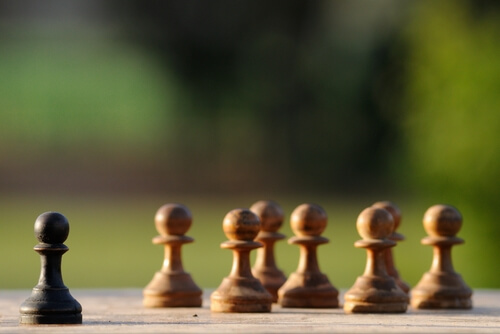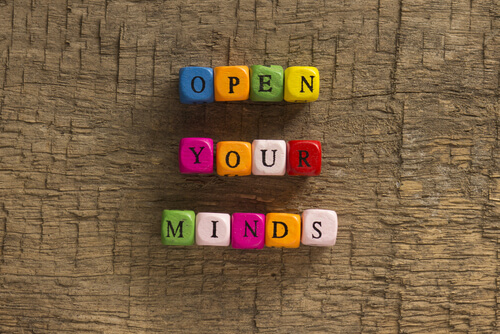Shattering Prejudices Each Day: The Best Recipe for Survival

Throughout the day, without realizing it, we talk and say things that denote our prejudices towards a person, group of people or a situation.
The bias comes from the Latin word “praeiudicium” which translates as “pre-judgment”. Therefore, prejudice is the act of prejudging, judging things or people without knowing them.
“Prejudice is the child of ignorance”
-William Hazlitt-
Prejudice is usually a negative attitude toward something or someone, which tends to be generalized. It leads to two consequences:
- It creates a cognitive schema that makes us sort information incorrectly.
- Not only does it create negative evaluations, but it also generates negative emotions.

Types of prejudice
Prejudice can be made up of different kinds: religious, political, racial, gender, etc. But we can highlight two major groups:
Social prejudices
They arise from differences of social position and the desire of people to justify and maintain those differences. Social prejudices make us believe that a man in a suit and tie is more reliable than a pauper. We store this information in our brain whether it’s true or not.
Racial Prejudice
These are prejudices derived from a person’s skin color. A group of psychologists from New York University, led by Elisabeth Phelps, conducted a study and found that many people make decisions based on unconscious racial bias.
The study asked 50 people of different races to intuitively rate the reliability of individuals of different races represented in more than 300 photographs, on a scale from 1 to 9.
It was discovered that the reliability of each person was dependent on the race. These unconscious biases, Phelps says, quickly come into play when we evaluate a stranger about whom we have no information.
Characteristics of prejudice
Prejudices have a number of features that include:
They have harmful effects
Since this is a value judgment based on insufficient or incomplete information. On this basis, the prejudice behavior may not be correct.
They are based on a distorted view of reality
Prejudices are a way of interpreting reality, but based on incorrect or incomplete information. Sometimes the bias persists despite having all the information.
They involve resistance to change
Prejudices are very difficult to change, because people believe in their veracity. The conviction that it is real prevents change.
Shatter a prejudice each day!
A good recipe for survival as well as to be happy is to shatter a prejudice each day.

How can we do it? Here are some tips:
Take time to get to know people
Before you say or think something about a person, take time to get to know them well and find out who they are. You might be pleasantly surprised if you give it a try. Many times you learn more from differences than from similarities.
Do not do to others what you would not like done to yourself
If you do not like to be criticized without reason and without people knowing you, don’t do it with other people. Respect others as you want them to respect you.
Develop empathy
Think about how the other person feels and put yourself in their shoes. We don’t know what kind of life others have had and many times we come to conclusions without sufficient information. Listen carefully and enjoy the ability to understand and meet others.
Discover your prejudices and commit to change
Reflect on what you think of people who belong to certain groups or races and commit to change. Appreciate diversity and learn from the differences. Diversity enriches us as people. The more people we know, the more varied points of view we will have and they will bring us more ideas on topics that we may not know or only partially understand.
Accept differences
It is impossible to understand or share everything, because each group has its customs, but maybe someone else from another group doesn’t understand your ways. The important thing is not to understand, but to accept differences.
“What a sad time we are in! It is easier to disintegrate an atom than
a prejudice”.
-Albert Einstein-
This text is provided for informational purposes only and does not replace consultation with a professional. If in doubt, consult your specialist.








